'Extreme agenda': How abortion ruling could upend presidential and Senate races in Arizona
- Oops!Something went wrong.Please try again later.
- Oops!Something went wrong.Please try again later.
- Oops!Something went wrong.Please try again later.
President Joe Biden led swift and sweeping condemnation on the political left and right of Arizona’s Supreme Court ruling Tuesday that broadly upholds a territorial-era ban on nearly all abortions and threatens to rock the political races at the top of the state's 2024 ballot.
Biden called the decision an outgrowth of an “extreme agenda” he blamed on Republicans and tied it to a period before Arizona was a state and before women were permitted to vote. Arizona Democrats sought to pin the ruling on contemporary Republicans, even as some in the GOP distanced themselves from the decision.
Republican U.S. Senate contender Kari Lake, who supported the 1864 law two years ago, on Tuesday said “it is abundantly clear that the pre-statehood law is out of step with Arizonans.” She aligned herself with former President Donald Trump, who has called for state-level laws on the issue rather than a national one.

“I wholeheartedly agree with President Trump — this is a very personal issue that should be determined by each individual state and her people,” Lake said. “I oppose today’s ruling, and I am calling on (Gov.) Katie Hobbs and the State Legislature to come up with an immediate common sense solution that Arizonans can support.”
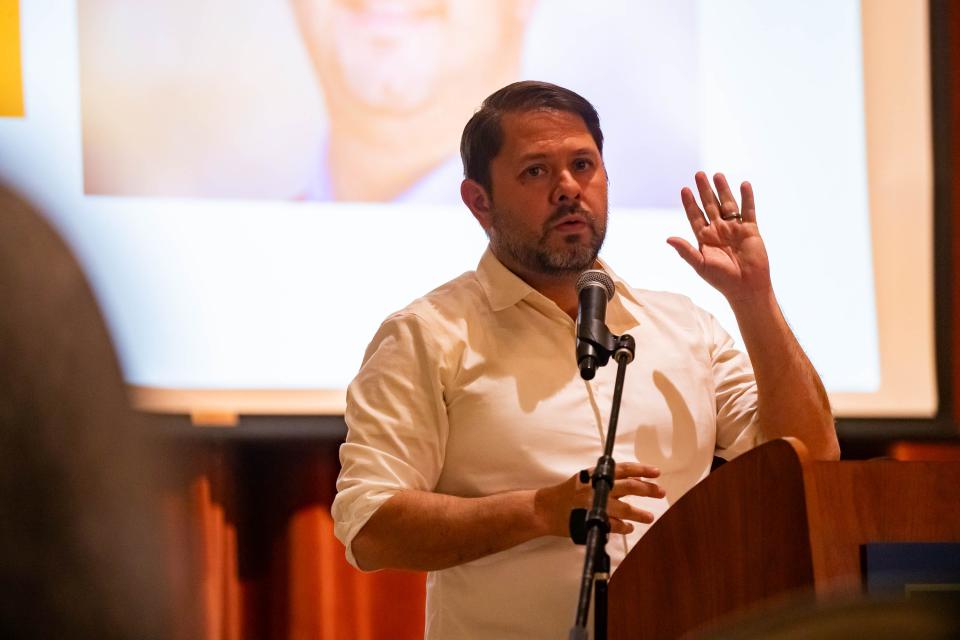
Lake’s Democratic rival, U.S. Rep. Ruben Gallego, called Lake part of an “extremist” political group “forcing themselves into doctors’ offices and ripping away the right for women to make their own healthcare decisions.”
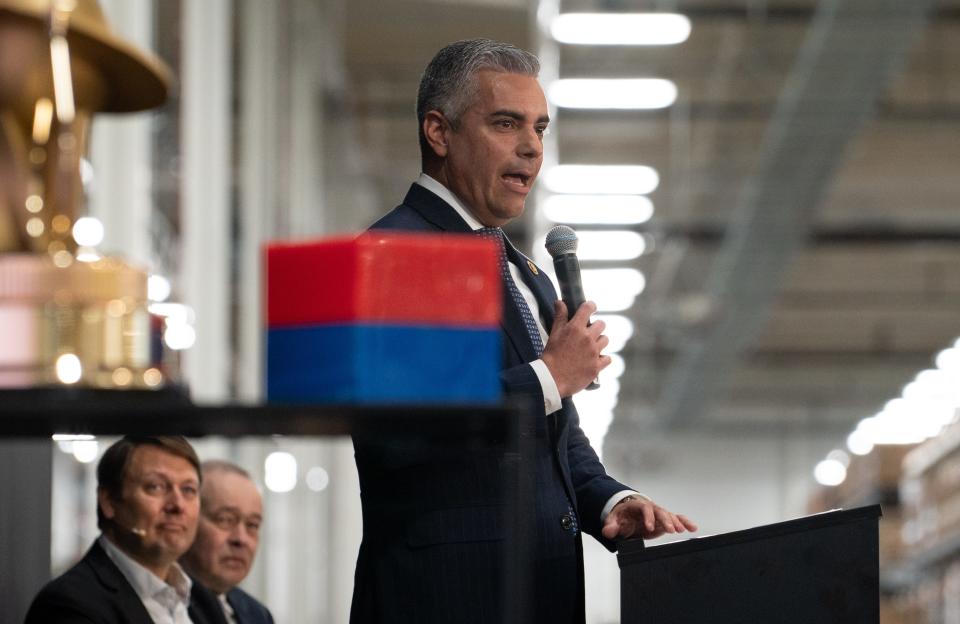
U.S. Rep. Juan Ciscomani, R-Ariz., likely faces a difficult reelection challenge from former state Sen. Kirsten Engel, D-Tucson, whom Ciscomani narrowly beat in 2022. Ciscomani previously has been adamant that abortion should be left to the states rather than the federal government. But on Tuesday, he called the decision “a disaster for women and providers.”
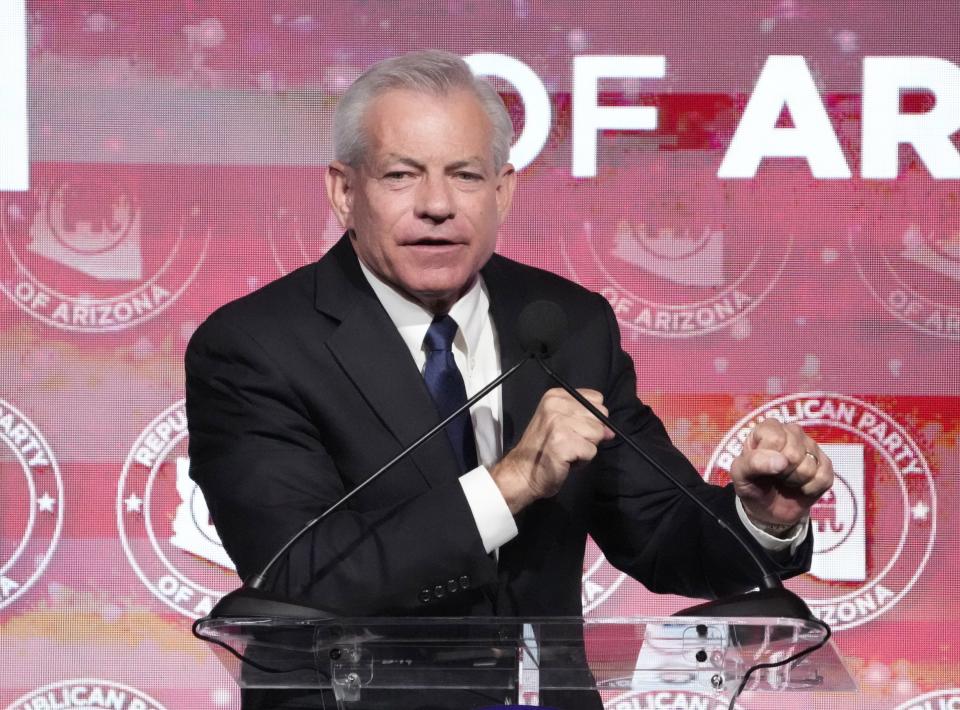
U.S. Rep. David Schweikert, R-Ariz., the other Arizona member of Congress seen as vulnerable to an electoral challenge, also distanced himself from the decision, writing "this issue should be decided by Arizonans, not legislated from the bench."
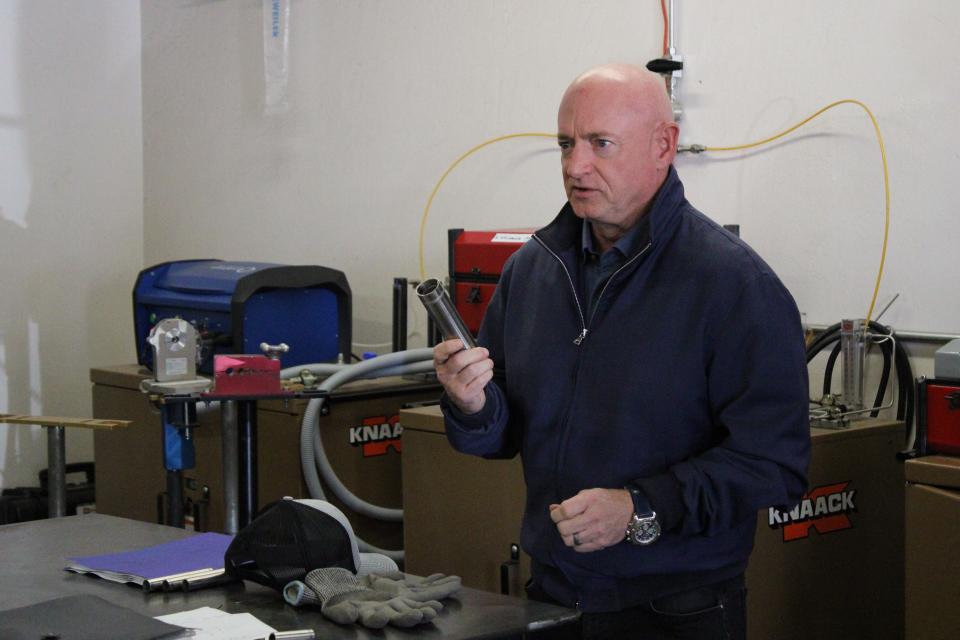
U.S. Sen. Mark Kelly, D-Ariz., said the ruling “sets women’s rights in our state back two centuries.”
U.S. Sen. Kyrsten Sinema, I-Ariz., cast the ruling as intrusive on women’s health and dangerous.
“A woman’s health care choices should be between her, her family, and her doctor. Today’s decision by the Arizona Supreme Court endangers women’s health, safety, and well-being,” she said in a statement.
“Arizonans should not be forced to travel out of state just to receive basic, sometimes even life-saving, health care. Doctors and hospitals should not be punished for providing health care to their patients.”

Political observers saw the ruling as a boost to Democratic prospects in a state that now becomes a national symbol of the rollback from a half-century of federal protections for abortion rights that were swept away by the U.S. Supreme Court in 2022.
“Back to 1864! Arizona just became a bit less of a swing state this fall,” Larry Sabato, director of the University of Virginia’s Center for Politics, wrote in a social media post. “Maybe a lot more than ‘a bit’. Big plus for Biden and Dem Senate candidate Ruben Gallego.”
Tony Cani, a Democratic strategist based in Arizona, also predicted the issue will be a liability for Republicans in federal races. He pointed to Lake as an example.
“Kari Lake has previously — even though she’s going to try and pretend like she didn’t — she has previously been very clear about the fact that she supports this particular law," Cani said.
“It’s gonna play out in congressional races, too,” he continued. “There’s no way that they can hide from this.”
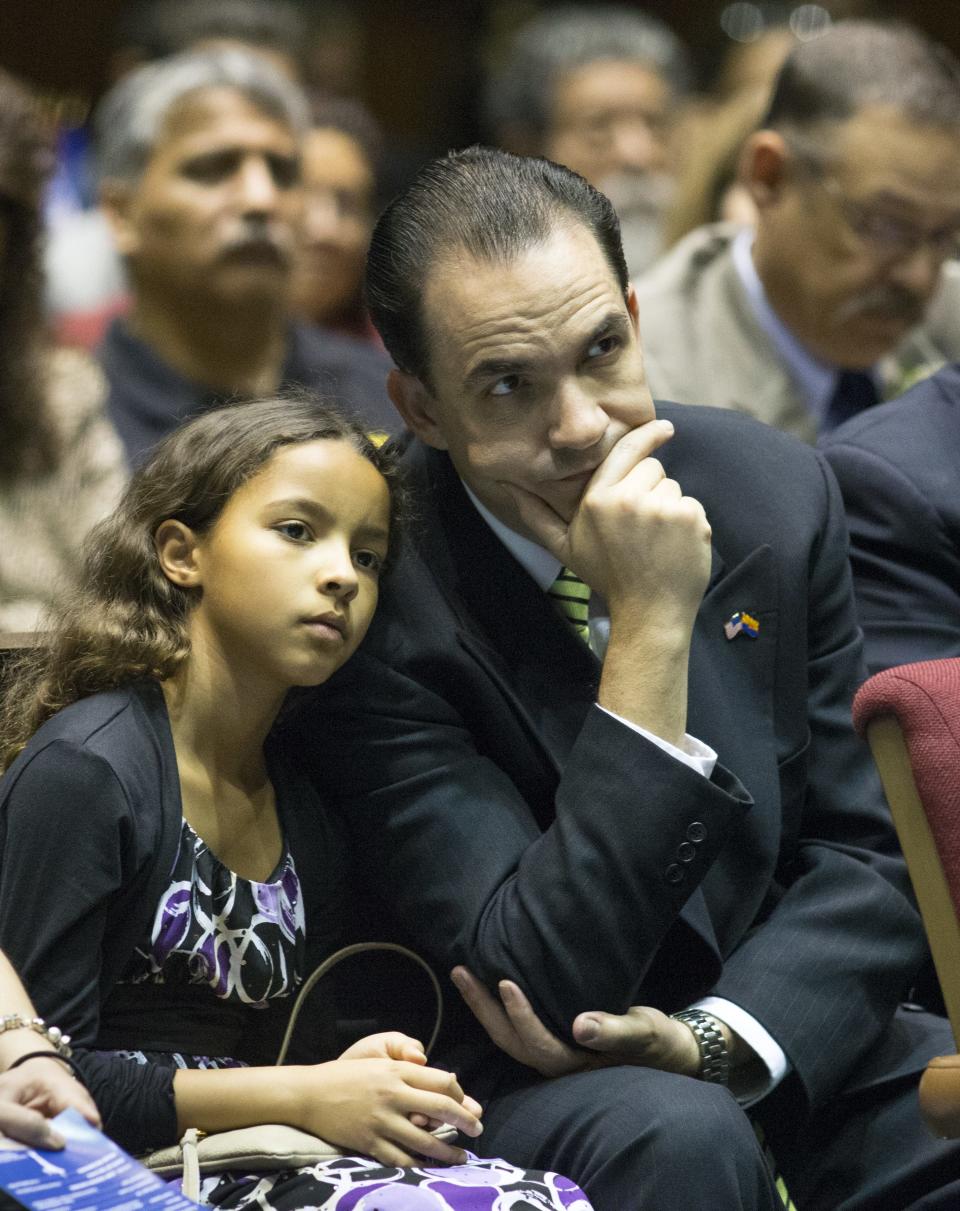
Constantin Querard, a GOP political consultant, takes a milder view. He noted that a ballot measure to change the Arizona Constitution to protect abortion access is already on track to come before voters in November. That would already have juiced turnout on the issue, likely in favor of the Democrats, he argued.
“Abortion is literally already on the ballot,” he said. “(Tuesday's decision) could be significant in a very close race, but I don’t know if it’s ultimately more than a one, two percent kind of shift.”
Still, “Arizona obviously features a lot of close races these days," he said. "One, two percent, that could be a big deal."
Querard, unlike Cani, believes Lake’s shifting stance on abortion won’t bear much on the outcome of the race. He pointed out that Gallego has shifted his rhetoric on certain issues, such as refocusing his rhetoric on immigration that appeals to a more centrist audience than his left-leaning congressional district.
“There’s a certain amount of shifting that goes on. Campaigns will make a big deal out of it. I don’t know that the voters necessarily register it,” he said.
“There’s nothing wrong with representing your state’s wishes, even if they differ from your personal wishes. To a certain degree, that’s what representative government is supposed to be.”
For Lake, Tuesday’s statement may be hard to reconcile with her views when she ran for governor in 2022.
In an interview with KFYI (550 AM) on the day the U.S. Supreme Court’s ruling erasing federal abortion rights came down, Lake welcomed the decision and looked hopeful to the state enforcing its territorial law.
“I’m incredibly thrilled that we are going to have a great law that’s already on the books. I believe it’s (Arizona Revised Statutes) 1336-03 that will prohibit abortion in Arizona except to save the life of a mother. I think we’re going to be paving the way and setting course for other states to follow.”
Trump has modified his views on the issue as well. Before running for politics, he expressed grudging support for abortion rights. During his 2016 campaign, he said women who get an abortion should face “some form of punishment.”
In office, he said he supported a ban on abortions after 20 weeks of pregnancy. On Monday, he said it should be up to states.
“My view is now that we have abortion where everybody wanted it from a legal standpoint, the states will determine by vote or legislation or perhaps both. And whatever they decide must be the law of the land. In this case, the law of the state.”
This article originally appeared on Arizona Republic: Kari Lake and Ruben Gallego react to Arizona's seismic abortion ruling

